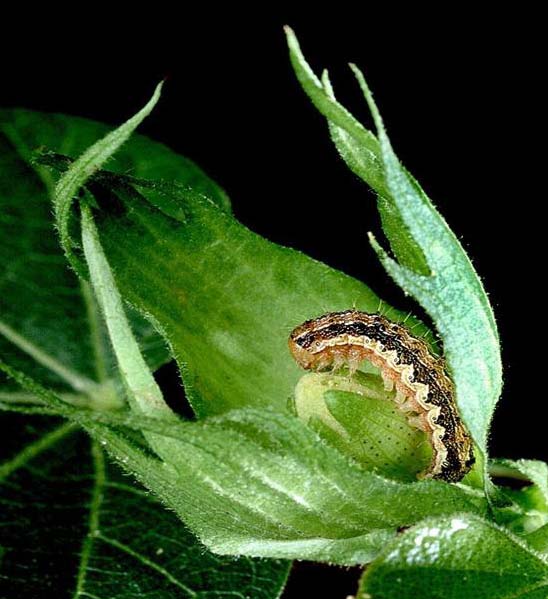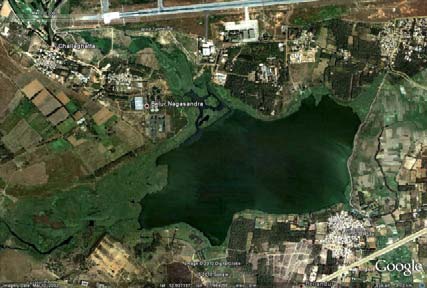/sub-categories/research-papers
Research Papers
Biomass production and carbon stock of poplar agroforestry systems in Yamunanagar and Saharanpur districts of northwestern India – A paper in Current Science
Posted on 20 Mar, 2011 10:18 PMPoplar (Populus deltoides) has gained considerable importance in agroforestry plantations of western Uttar Pradesh, Uttarakhand, Haryana, Punjab, and Jammu and Kashmir due to its deciduous nature, fast growth, short rotation and high industrial requirement. Poplar based agroforestry systems are prevalent among farmers of Saharanpur (UP) and Yamunanagar (Haryana) districts of northwestern India.
Patterns of diversity and conservation status of freshwater fishes in the tributaries of river Ramganga in the Shiwaliks of the Western Himalaya – A paper in Current Science
Posted on 20 Mar, 2011 09:47 PMOne tributary was within a protected area (PA; Corbett National Park); the other two were outside the PA (Lansdowne Forest Division). Cast nets were used for fish sampling, which was done from 9.00 a.m. to 5.00 p.m.
Vicious cycle of fluoride in semi-arid India – A health concern – A paper in Current Science
Posted on 20 Mar, 2011 09:10 PMMore than 16 states in India are facing the fluorosis problem. Several southern-peninsular states are experiencing monsoon climate condition, where the rainwater is harvested through tanks and used for agriculture.
Pest and disease management in organic, natural, sustainable agriculture - Presentations from the South Asia Conference on "Outstanding Organic Agriculture Techniques", Bangalore organised by OFAI (2009)
Posted on 20 Mar, 2011 06:17 PM This set of presentations from the conference on Outstanding Organic Agriculture Techniques held during September 2009 at Bangalore deals with pest and disease management practices in organic farming, which rely primarily on preventive and integrated methods.
This set of presentations from the conference on Outstanding Organic Agriculture Techniques held during September 2009 at Bangalore deals with pest and disease management practices in organic farming, which rely primarily on preventive and integrated methods.
Crop production and plan protection in organic farming
This paper by S R Sundararaman presents organic farming as the only recourse for farmers, to save both livelihood and the health of the soil. Organic farming methods enable farmers save money and turn their farmyard waste into value-added products for increasing crop production. Farmers will not have to be dependent on agri-business companies for seeds, fertilizers and pesticides. Our self-reliance is thus preserved. A large portion of our country's foreign exchange is used to pay for the import of petroleum products. By going organic we will also help our country save on valuable foreign exchange. Our land will keep giving us returns for extended periods of time unlike farming as per the green revolution, where the land stays productive for a short time and then becomes sterile.
The uppermost question in the minds of farmers who have recently converted to organic farming or who want to turn organic is how to ensure that crop production does not reduce and how to protect the plants from disease, without the chemical fertilizers and pesticides that their fields have grown used to. This paper provides the answers and it also seeks to reassure all farmers that there is no farm which cannot turn around and produce quality crops in sufficient quantity, using organic farming methods.
Lakes of Mahadevpura constituency of Bengaluru: Current status, changes in distribution and recommendations for restoration - A report by ATREE (2011)
Posted on 02 Mar, 2011 09:18 AM The lakes are now faced with the impacts of rapid urbanization and the Bruhat Bengaluru Mahanagara Palike (BBMP) has been consolidating management of the majority of the city’s lakes under its control in the recent years. The survey dealt with 35 lakes in 10 sub chains in Mahadevpura. The report describes current status, studies changes in extent, and suggests steps for reclamation and conservation.
The lakes are now faced with the impacts of rapid urbanization and the Bruhat Bengaluru Mahanagara Palike (BBMP) has been consolidating management of the majority of the city’s lakes under its control in the recent years. The survey dealt with 35 lakes in 10 sub chains in Mahadevpura. The report describes current status, studies changes in extent, and suggests steps for reclamation and conservation.
Canacona flash floods (2009): Reports submitted by the National Institute of Oceanography to the Government of Goa
Posted on 01 Mar, 2011 09:00 PMThe report is based on a study carried out with the help of National Institute of Oceanography (NIO) and attempts to (1) assemble and analyse available information to describe and identify causes behind the flash floods, and (2) suggest measures to be adopted in Goa to minimise damage arising from similar episodes in future.
Ancient, traditional water and agricultural management systems - A collection of papers from the national seminar on water and culture, organised at Hampi, by Sahayoga and Kannada University (2007)
Posted on 14 Feb, 2011 06:28 AMA National Seminar on Water and Culture was organised by Sahayoga and Kannada University between June 25-27 2007. The seminar was intended to provide useful documentation to those working on water and agricultural management systems, those interested in integrating these traditional techniques with modern practices and to those working towards providing sustainable access to water and food, for all common citizens.
Sethusamudram channel project - An epoch making event - Paper presented at the National Seminar on Water and Culture (2007)
Posted on 14 Feb, 2011 05:24 AMBeginning with the need for a such a shipping lane, the author compares its importance to the Suez and Panama canal. Currently ships have to go round Sri Lanka to go between the two India coasts. This increases the passage time and fuel costs.The canal would lead to a saving of 254 to 424 nautical miles and reduce sailing time of ships by 21 to 36 hours.
Study of ancient water storage systems on forts in Nashik district of Maharashtra - Paper presented at the National Seminar on Water and Culture (2007)
Posted on 14 Feb, 2011 05:11 AMThis paper studies the water supply, distribution, collection and storage in the forts around Nashik with the idea of testing the viability of implementing such systems in areas of similar topography. The history of forts in Maharashtra and the forts around Nashik and the water collection and distribution systems thereof are described.
Two ancient irrigation systems of India - Paper presented at the National Seminar on Water and Culture (2007)
Posted on 14 Feb, 2011 05:03 AMThe Phad system of irrigation, is found in Maharashtra over the rivers Panzara, Girna and Burai, which are tributaries of Tapi.